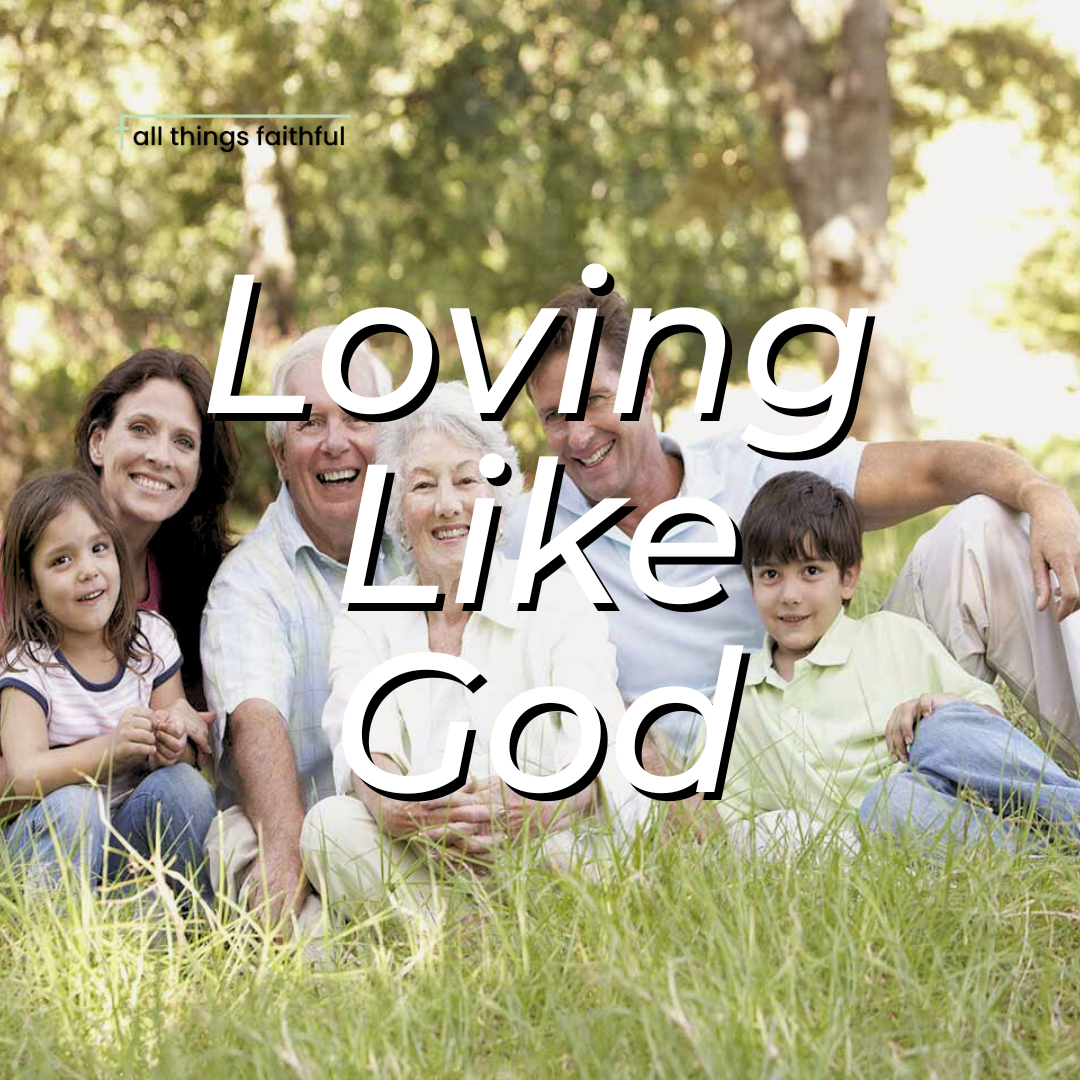
Loving Like God
“A new command I give you: Love one another. As I have loved you, so you must love one another. By this everyone will know that you are my disciples, if you love one another.” John 13:34-35 (ESV)
This week, people around the world celebrate Valentine’s Day. Originally a Christian feast day honoring the Italian martyr Valentine of Terni, today it has come to celebrate romance and love (and yes, to sell a few cards, some chocolate, and gifts of all types).
As we celebrate love, marriages, and lives together this Valentine’s Day, let’s also be reminded of a much more profound and deeper meaning this day signifies: the power of God’s love in transforming the world.
God’s Steadfast, Sacrificial Love
One of the most recognized passages in scripture is John 3:16, where Jesus, speaking with Nicodemus says, “For God so loved the world, that He gave His only Son, that whoever believes in him should not perish but have eternal life.”
This verse describes the sacrificial nature of God’s love – a love so deep, so unselfish, so complete that He gave His Son for our redemption. Which of us would do the same?
God’s love is also described as steadfast and unchanging. In Lamentations 3:22-23 we read, “The steadfast love of the LORD never ceases; his mercies never come to an end; they are new every morning; great is your faithfulness.”
God’s love is never fickle or conditional; it is constant and renewing, offering each of us a fresh start every day. Can we say that about our love for one another?
The Power of God’s Love in Us
God’s love is transformative. It changes us from the inside out, enabling us to love in ways we never thought possible. The Apostle Paul prays in Ephesians 3:17-19 that we might have the power to comprehend the breadth, length, height, and depth of Christ’s love – a love that surpasses knowledge, filling us with the fullness of God.
The power of God’s love was evident in the life of Corrie ten Boom, who, after surviving a Nazi concentration camp, forgave her captors. This act of forgiveness was not born of her own strength but was a profound demonstration of God’s love working through her.
God Calls Each of Us Into Love
In Matthew 22:37-39, Jesus summarized the Law and the Prophets in God’s command to love, saying, “‘You shall love the Lord your God with all your heart and with all your soul and with all your mind. This is the great and first commandment. And a second is like it: You shall love your neighbor as yourself.'”
To Jesus’ listeners, this command was revolutionary, placing love, not slavish adherence to the burdensome regulations created by the Pharisees, at the core of righteous living and salvation.
1 John 4:19-21 expands this by explaining the relationship between loving God and loving others: “We love because He first loved us. If anyone says, ‘I love God,’ and hates his brother, he is a liar; for he who does not love his brother whom he has seen cannot love God whom he has not seen.”
Our ability to love others reflects our understanding and acceptance of God’s love for us.
Our Response to Love – Action
Our capacity to love is not only a reflection of God’s love but also a response to it. As 1 John 4:11 teaches, “Beloved, if God so loved us, we also ought to love one another.” Our love for others is a natural overflow of our gratitude for God’s love. It’s in our acts of kindness, forgiveness, and service that we manifest God’s love to the world.
Love is not merely a feeling; it’s action. In 1 Corinthians 13, often called the “Love Chapter,” Paul describes love’s attributes: patience, kindness, not envying or boasting, not being arrogant or rude. Paul challenges us to love in action, not just in our words. It’s in our daily interactions, how we treat our family, friends, and even strangers, that we demonstrate the power of love.
Challenges to Love
Loving like Jesus loved is not without its challenges. We live in a broken world, and there will be times when loving others is difficult.
Forgiveness is one of the greatest challenges and expressions of love. It’s a choice to let go of resentment and offer grace to someone who may not deserve it, just as God has done for us. It doesn’t mean forgetting or excusing harm, but it does free us to love more fully, reflecting God’s forgiveness towards us.
As we are reminded in Romans 5:8, “But God shows his love for us in that while we were still sinners, Christ died for us.” If God loved us at our worst, we too are called to love others, even when it’s hard.
Cultivating A Love Like God’s
Prayer is essential in cultivating love that reflects God’s love for us. It’s in prayer that we are reminded of God’s love for us and empowered to love others. Through prayer, we can ask for the grace to see others as God sees them and to love them accordingly. This is something René and I continue working on both in ourselves and with those around us.
In cultivating and embracing the power of love, we follow in the footsteps of Jesus, who loved us to the end. And in our journey of love, we discover the heart of Christianity is not a set of rules, but a relationship rooted in the most powerful force in the universe: love.
May God always guide your path.


